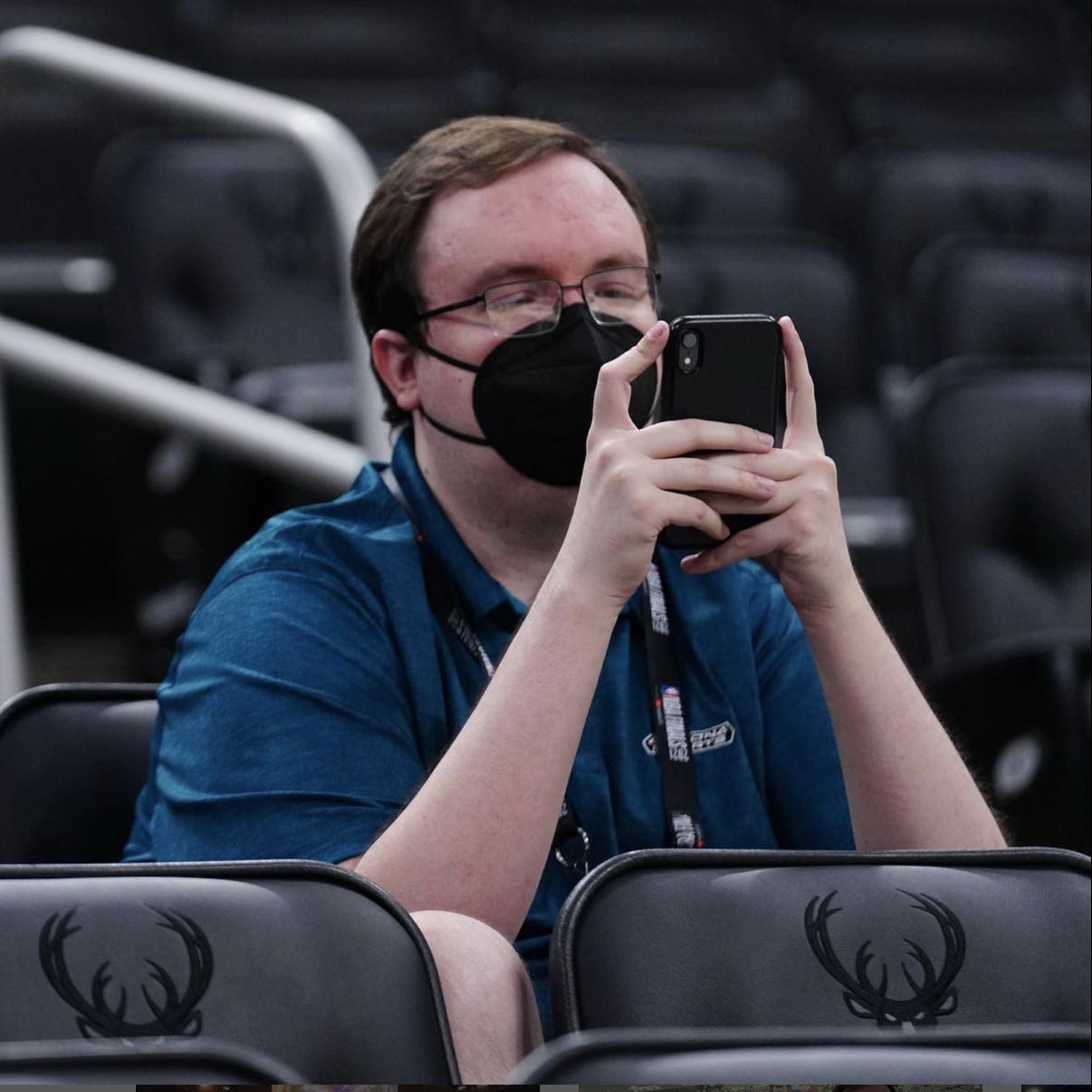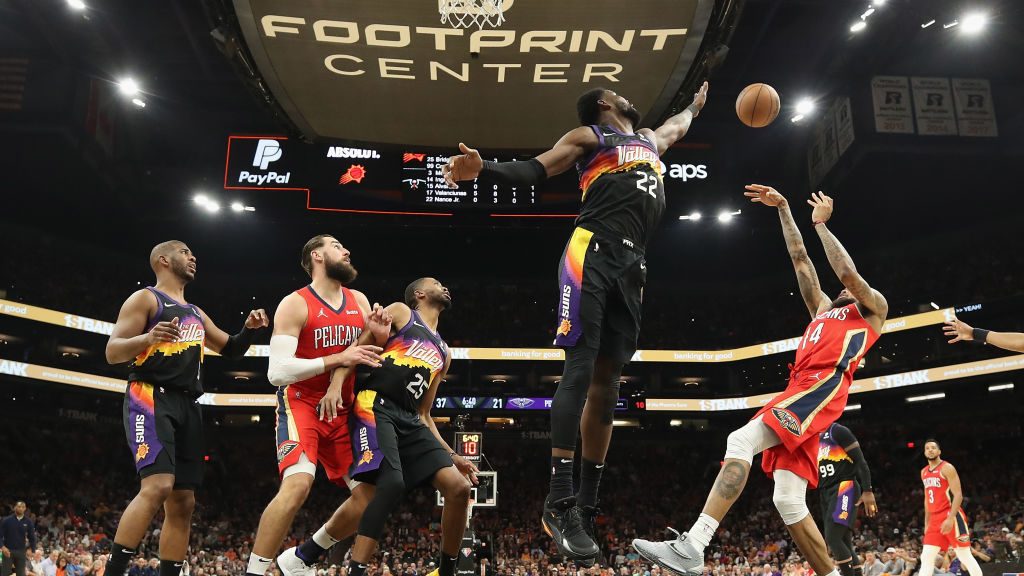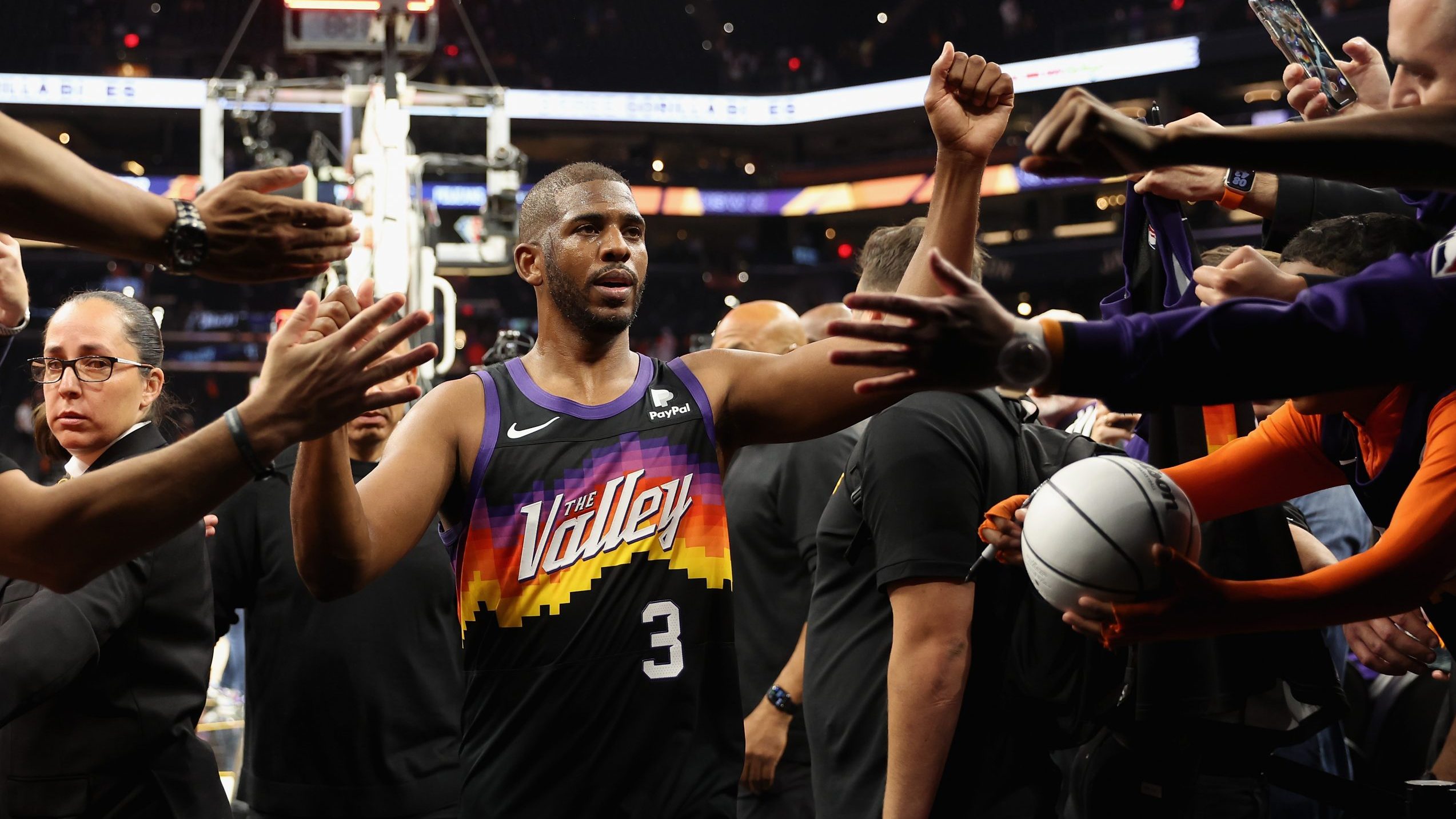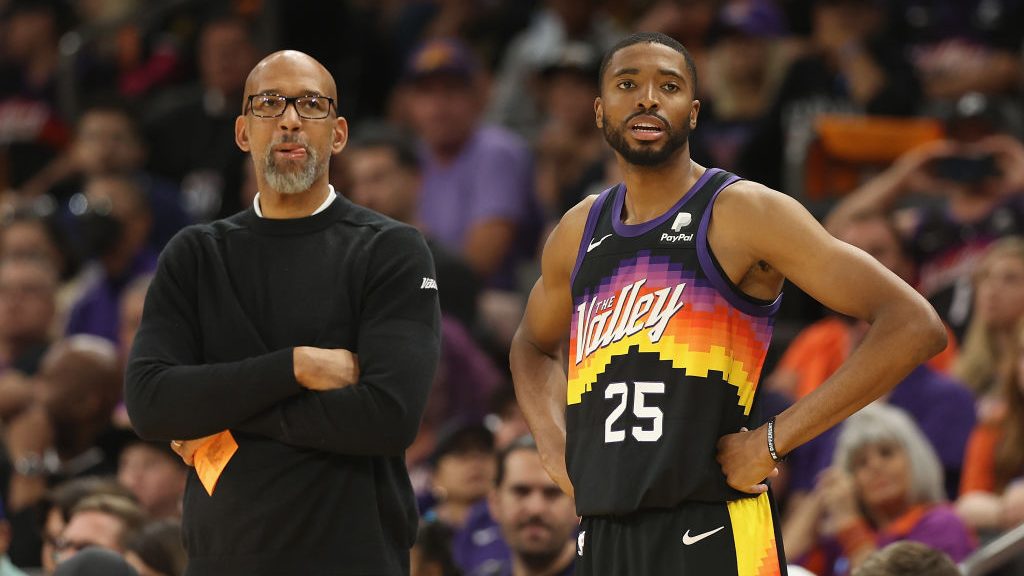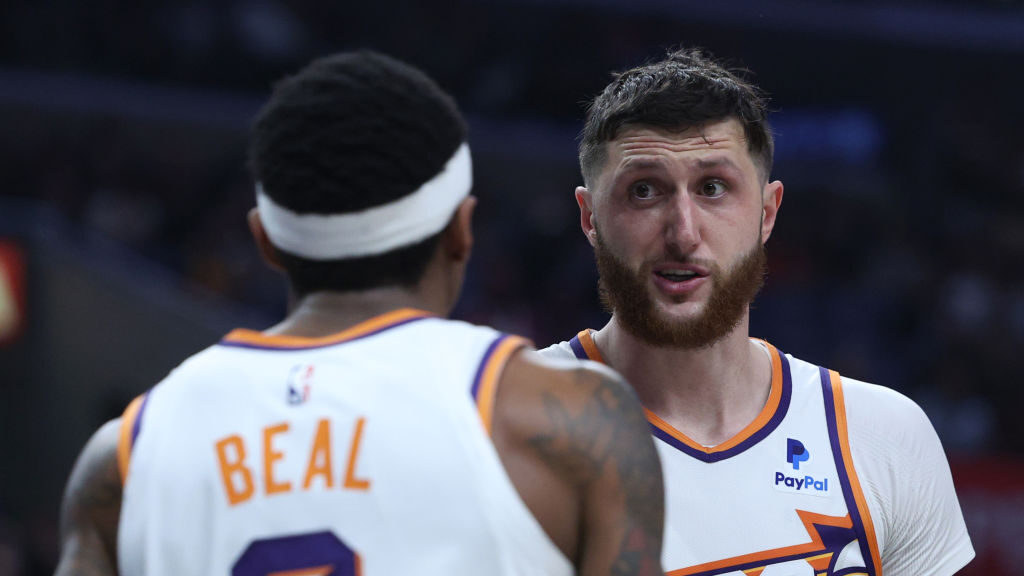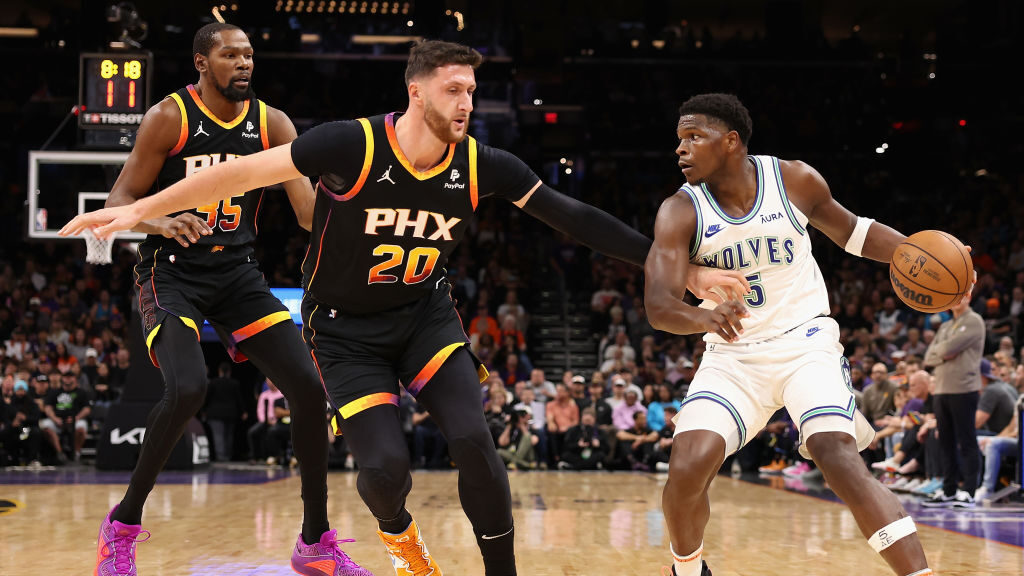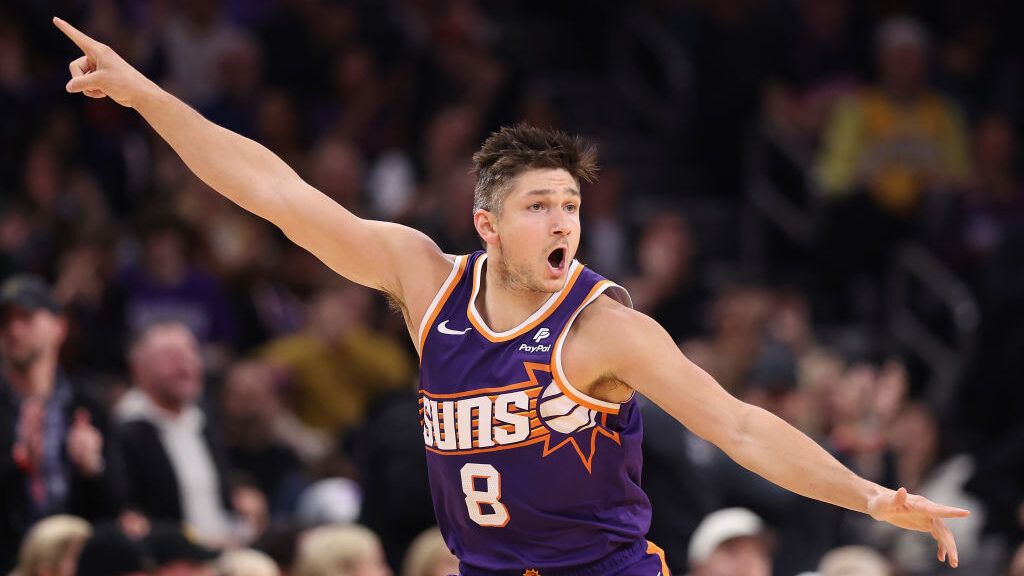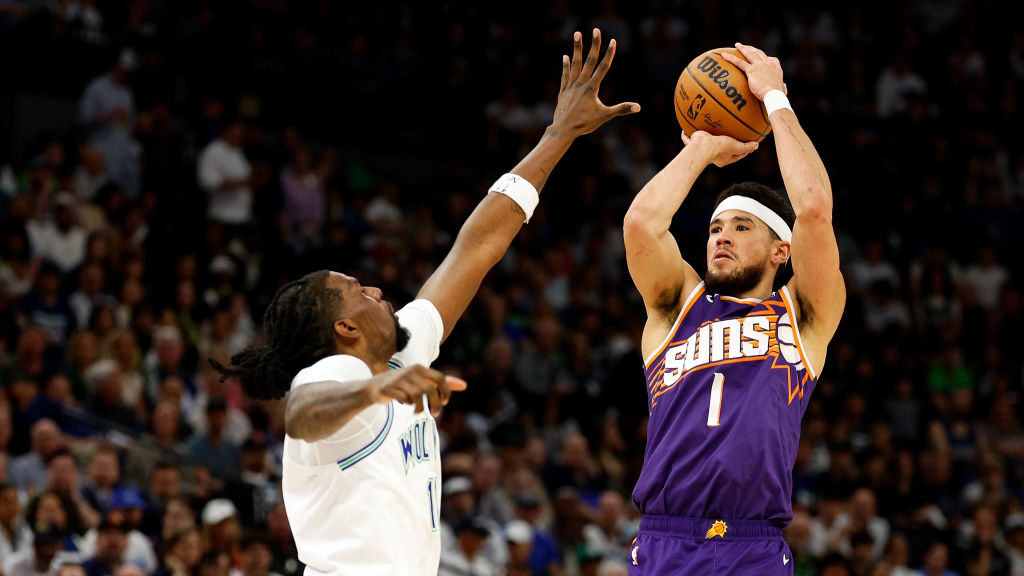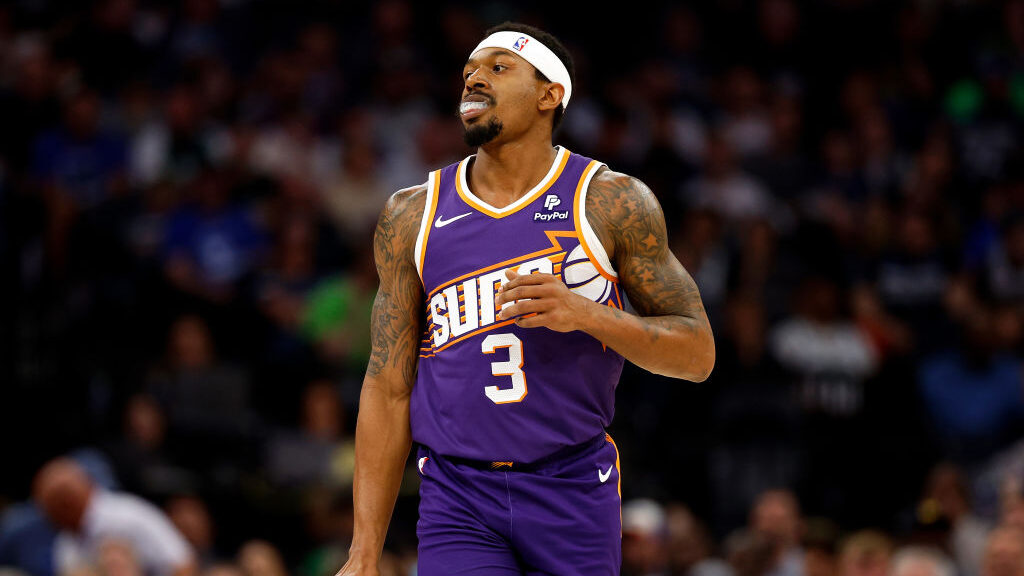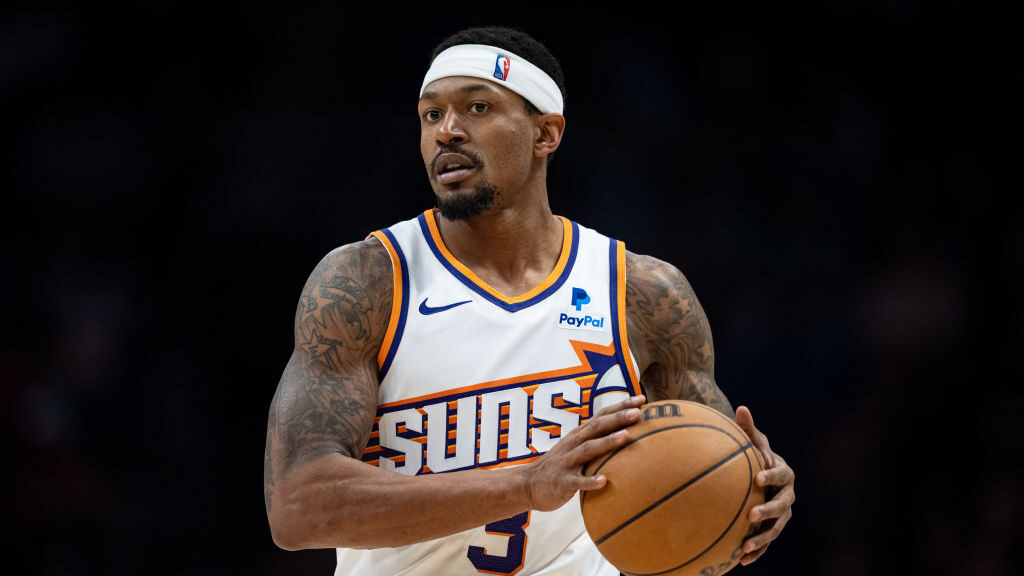Suns-Pelicans Game 2 preview: Glass cleanup, NOP’s potential tweaks
Apr 18, 2022, 5:41 PM | Updated: 5:51 pm
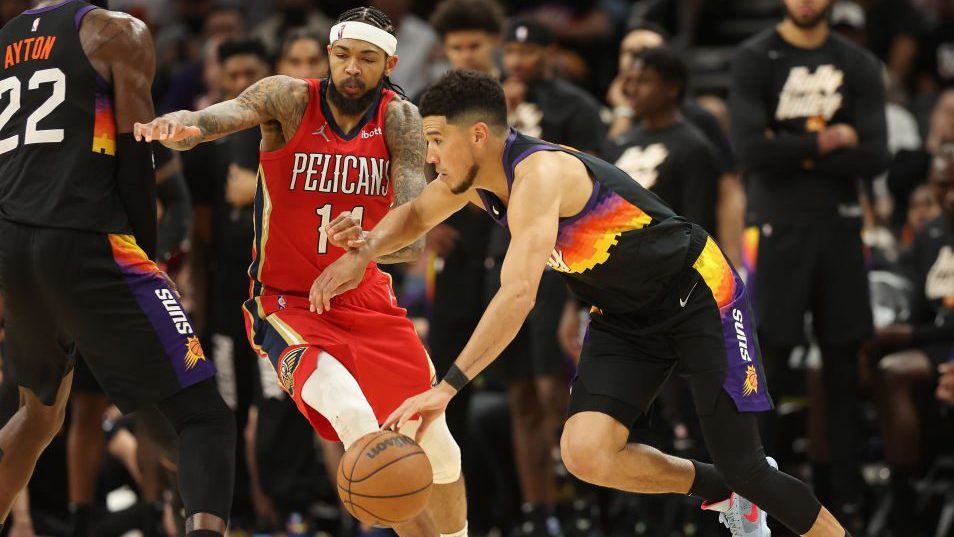
Devin Booker #1 of the Phoenix Suns drives the ball past Brandon Ingram #14 of the New Orleans Pelicans during the second half of Game One of the Western Conference First Round NBA Playoffs at Footprint Center on April 17, 2022 in Phoenix, Arizona. The Suns defeated the Pelicans 110-109. (Photo by Christian Petersen/Getty Images)
(Photo by Christian Petersen/Getty Images)
PHOENIX — It was by no means perfect basketball played by the Phoenix Suns in Game 1 of the first round against the New Orleans Pelicans on Sunday, but it was pretty darn good.
The 110-99 win left only one obvious area of concern for the Suns if you even want to call it that: defensive rebounding.
New Orleans snagged 25 offensive rebounds that allowed them to take 17 more shots than the Suns, a problem that has carried over from the fixtures in the regular season.
“That many offensive rebounds is way too many and it caused them to have almost +20 in possessions,” Suns head coach Monty Williams said after practice Monday.
Eventually, that’s going to add up, and it did during the Pelicans’ 18-5 run to close the last five minutes and change of the third quarter.
I’d only file a few of those 25 under a label of inexcusable, and they were mostly across that stretch.
Jonas Valanciunas had 13 of those on his own, albeit an inflated number with a couple of volleyball tips that count too. He was able to take advantage of Deandre Ayton’s duties denying ball-handlers space inside the 3-point line and also just bodied Ayton occasionally from about 10 feet to make up half that.
That last clip is where you see just that. Williams said it’s both Ayton needing to make contact with Valanciunas earlier and other Suns players coming over to help when their man isn’t crashing.
That’s the thought here for Devin Booker but Herb Jones was indeed crashing.
A handful of the 25 were just some good bounces for the Pelicans and they benefitted from sending so many players to crash the glass. But the Suns made them pay for that with 13 fastbreak points in the first half.
“It was good for us,” Williams said of running off misses. “Any time we get a stop, that’s the benefit.”
Suns forward Cam Johnson said Monday he played for a team in college that really focused on offensive rebounding, so he knows how that leaves a team’s transition defense in a tough spot.
The “hit-first mentality” Williams often brings up is a simple fix for an issue that is certainly correctable. It was much easier for the Suns to take on given the work they did in the other areas to give up the type of shots to the Pelicans they wanted to.
Game 1s can be a good source for a baseline of information with how the matchup works in a playoff environment, and the main takeaway in that regard was a strong indicator that New Orleans will need to change its starting lineup.
21-year-old Pelicans center Jaxson Hayes, starting at power forward alongside Valanciunas, did his best impression of Denver’s Michael Porter Jr. from last postseason in terms of how lost he looked defending the Suns’ actions.
Hayes was the target for Phoenix to open the second half and the Pelicans got diced up because of it.
Booker after the win shared some Suns vernacular with the media that applied to this situation.
“You watch a lot of games sometimes and teams don’t expose the weak link out there, what we call the pigeon, the person that can’t guard,” he said Sunday. “If we have somebody that we feel that can’t guard and they’re switching 1-5 or 1-4 we’re going to keep going to it.”
That stretch for Hayes in the third quarter and what Chris Paul did to Larry Nance Jr. in the fourth made it easy to spot New Orleans’ pigeons. That’s tough on Hayes and particularly Nance, who are good defenders in certain aspects, but this is the big-time now. Playoff basketball.
After the first timeout of the third quarter, Hayes did not return and amounted to 11 total minutes.
On top of that, Hayes’ minimal offensive role as a non-shooter that shouldn’t dribble let the Suns help off him and gave Booker a relatively easy defensive assignment to not wear him down that much. Some of that was thanks to a great defensive effort by Jae Crowder on Brandon Ingram, which didn’t require Mikal Bridges to take Ingram so he could defend C.J. McCollum instead of Booker.
To flip it around to the other side of the court again, Ingram spent a good amount of time defending Booker. That does not seem like a good idea for his gas tank, even though Ingram has made strides as a defender.
All of those variables, to me at least, begs the question of if there is a good answer for the Pelicans adding a defender that could match up on Booker or Paul while also being more of an offensive threat than Hayes to improve their spacing.
I think so? Rookie Trey Murphy III is the shooter and could at least spend more time on Booker than Hayes ever would. Rookie Jose Alvarado is a playmaker who could put in the fullcourt pressure on Paul that Jones did in Game 1, and that would free up Jones to mark Booker. Murphy checked in for Hayes on Sunday while Alvarado spent time in both halves playing Hayes’ spot with the four other starters as well.
Maybe it’s Nance at the 4 or Devonte’ Graham at point guard for more offense?
All of this is to say there isn’t a good answer for New Orleans given its roster construction and how balanced the Suns are.
On Monday, Pelicans head coach Willie Green said there won’t be a starting lineup change “at the moment,” per ESPN’s Andrew Lopez.
We will see if that moment comes before Game 2 or after it, but either way, something needs to change for them fast.

